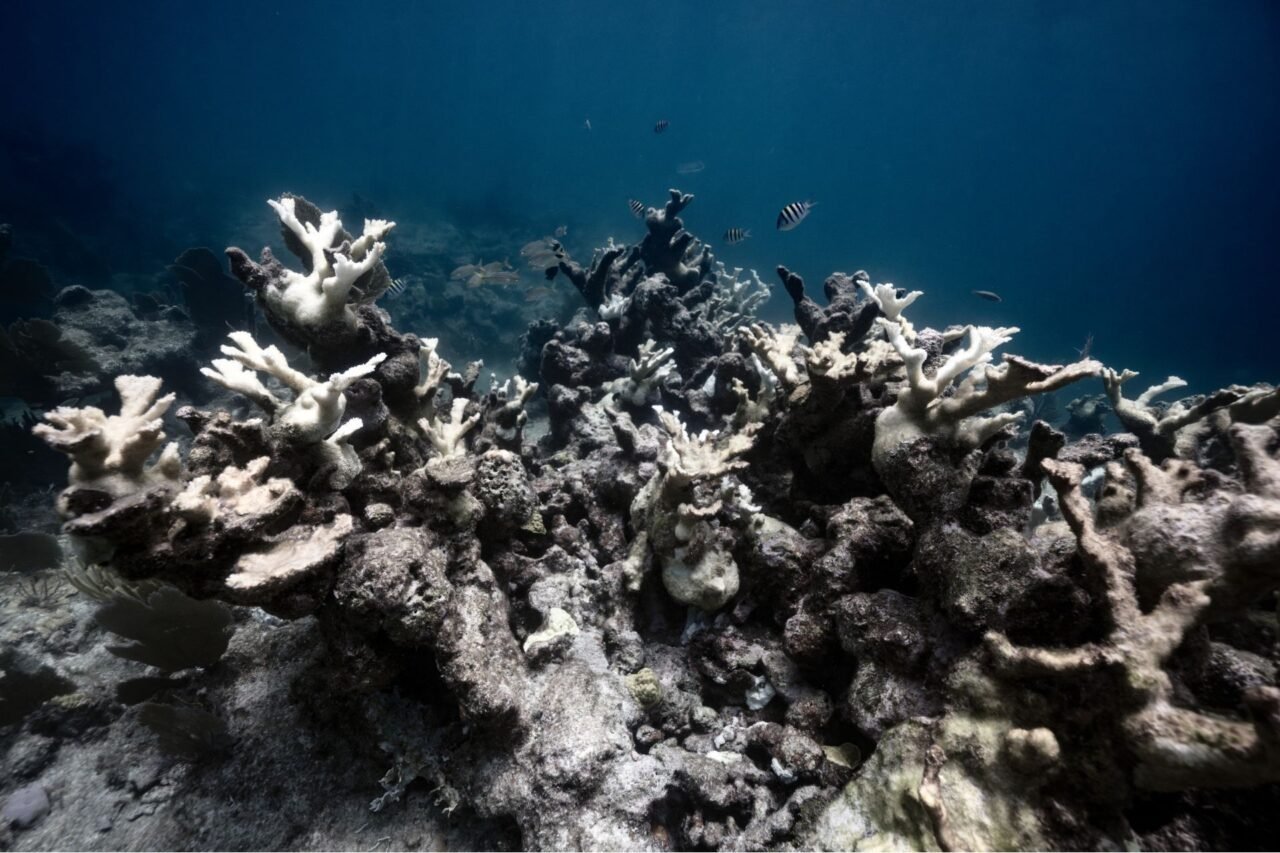BREAKING: A landmark report confirms that the world’s warm-water coral reefs have crossed a critical thermal tipping point, marking them as the first Earth ecosystem to face irreversible damage from climate change. The 2025 Global Tipping Points Report, released on October 15, 2023, by the University of Exeter and international partners, reveals alarming data just as global leaders convene in Brazil for the upcoming UN Climate Change Conference.
Marine biologist and coral conservationist Melanie McField, director of the Healthy Reefs for Healthy People initiative, highlights the urgency of the situation. “We are in the zone where death—the tipping of the whole ecosystem—is underway,” McField stated, emphasizing the critical need for action as ocean temperatures soar.
The report reveals that since January 2023, 84.4% of the world’s coral reefs have experienced bleaching-level heat stress, affecting regions across 83 countries. This alarming trend marks the fourth global coral bleaching event and the largest on record, with scientists documenting unprecedented mass coral bleaching globally.
Coral bleaching occurs when rising ocean temperatures cause corals to expel the vital algae that provide them with nutrients and color, leading to a significant decline in their health and survival. Despite this, bleached corals are not necessarily dead. If ocean temperatures stabilize, there is potential for recovery. However, as climate change accelerates, the frequency and severity of bleaching events are increasing, diminishing the odds of coral recovery.
The report warns that the global average temperature of Earth’s oceans has already surpassed the 2.16°F (1.2°C) threshold necessary for the survival of warm-water coral reefs, and projections indicate temperatures may rise by an alarming 2.7°F (1.5°C) within the next decade. Should this occur, reefs will face near-certain tipping, pushing these ecosystems into uncharted waters.
“Let’s say we’ve got 100 humans, and they all go to the doctor,” McField analogizes. “All of them have cholesterol levels of 300—which is incredibly dangerous. They’re still going to die at different rates.” Each coral reef possesses unique characteristics that influence its resilience, but the overall risk is escalating across the board.
The report underscores the urgent need for global leaders to take decisive action. “We need to have stubborn people at the table in these negotiations who say, ‘We want to keep coral reefs on the planet,’” McField urged, as discussions continue in Brazil.
Efforts to protect and restore coral reefs are underway worldwide, with strategies focusing on enhancing coral resilience and minimizing stressors such as pollution and destructive fishing practices. While genetic modification is being explored to breed resilient coral species, the need for substantial funding and action remains critical. Experts agree that without stringent emission reductions and enhanced carbon removal, temperatures will continue to rise, endangering coral reefs further.
“Retaining functional warm-water coral reefs at a meaningful scale requires us to lower global temperatures to 1.8°F (1°C) above pre-industrial levels,” the report warns, calling for immediate engagement from the scientific community and stakeholders.
As the world faces this urgent environmental crisis, the findings of the 2025 Global Tipping Points Report serve as a stark reminder of the consequences of inaction. The fate of coral reefs hangs in the balance, and the time for decisive action is now.
